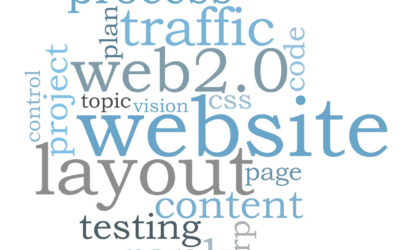
“Is this SEO thing right for my business?”
Just as commercials suggest that you ask your doctor if their prescription is right for you, consider asking your SEO specialist if that new SEO option is right for your business. Because here’s the thing about SEO that also applies to prescriptions on commercials: you may not know enough about it to know if it is right for you.
In this post, I’ll share what information is necessary for every small business website to be sure it gives search engines the information they need to properly weigh whether that specific site is a good result for search terms. I’ll also share how small businesses can better big businesses in search results.
Before we get started on that, let’s break down what this acronym means. SEO is Search Engine Optimization or, in less technical terms: adding the information to your website so it is easy for search engines to find and weigh against search terms for the result ranking. The better your site’s information matches the terms someone’s searching for in their search bar, the higher that site will land in the results.
You’ve likely heard that SEO is vital to any small business but do you know what level of SEO you need for the size and needs of your business? I hear more and more small business owners ask about having their site reworked for better SEO or continuing SEO work. The truth is (in my opinion, as a marketing consultant) that most SEO packages aren’t necessary for tiny businesses. Many factors impact where a site lands on search results, including over 200 factors that Google weighs for each site.
Basic SEO
Your site probably already has some of the information that search engines look for on a website including the site title, words in the heading, and copy on the home page.
So, why does the site title, heading, and copy on that first-page matter for SEO?
Your words in each place must be the same as the words your ideal clients are using to search. The specific words you use in your site title must be the same words someone puts into their search to qualify as a good match. So, if your site title is Uplevel Your Business but your ideal clients search for Practice Busines Coach, they may not get your site in their first, second, or even third result. In fact, your site may not even make the first page of results. Ouch!
How can you change this ranking? Align your site’s title, heading, and the first line of copy so they all use the same words that your ideal clients use when they search for someone who provides your service. Yes, this relates to the idea that you must know your ideal clients well and the specific language they use before making changes to your website. (For more on how to start finding the words that your ideal clients use, check out this post about Writing That Your People Will Actually Read.)
Go Meta
After you’ve updated the terms you’ve used in your site’s title, home page heading, and the first line of copy, you’ll be ready to take the next step in basic SEO for your site: the meta description. For some websites, this will also go by the metadata.
In this field, you’ll be able to add much more information about your services, who you help, and the results you help them achieve. In years past, this field would allow for keyword stuffing, which simply adds as many keywords as possible to display more results. Although this was once common practice, it is now a factor that will discount a site’s ranking in search engines.
With keyword stuffing gone from the options for meta descriptions/metadata, what actions should small business owners take to optimize their sites? Write in simple language that your ideal clients already use to articulate what they need for results and who they want to work with to get those results.
Research Your Ideal Clients
First, go back to the copy you’ve noted after hearing it from your ideal clients. (If you’re still stuck on how to find this, download my free Small Busines Website Copy Guide for more ideas on how to find their language.) Pull the specific words or phrases related to what you do and look at which ones are the most accurate. You’ll be the expert on accuracy in this case since you’ll know your ideal clients better than anyone else, AND you’ll also know the services you provide better than anyone else. For any meta information, you’ll want only to include words that are:
- Accurate about what you do
- Accurate about the services you provide
- Accurate about the results your ideal clients can expect to have from working with you
Yes, the theme here is to be truly honest about what you do and the results you provide to your ideal clients. When building out the SEO for your small business, you’ll want to be as accurate as possible with what you say you do, just as with any other piece of information you share about your business. Accuracy and honesty are at the foundation of good copy.
With the steps above, you’re ready to start updating your website’s information so it shows up better in the searches of your ideal clients.





